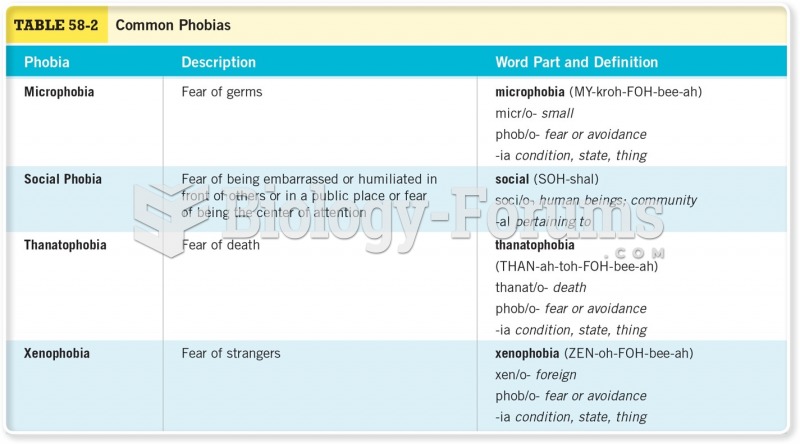|
|
|
Did you know?
A strange skin disease referred to as Morgellons has occurred in the southern United States and in California. Symptoms include slowly healing sores, joint pain, persistent fatigue, and a sensation of things crawling through the skin. Another symptom is strange-looking, threadlike extrusions coming out of the skin.
Did you know?
In 1864, the first barbiturate (barbituric acid) was synthesized.
Did you know?
Critical care patients are twice as likely to receive the wrong medication. Of these errors, 20% are life-threatening, and 42% require additional life-sustaining treatments.
Did you know?
Human kidneys will clean about 1 million gallons of blood in an average lifetime.
Did you know?
Today, nearly 8 out of 10 pregnant women living with HIV (about 1.1 million), receive antiretrovirals.
 Otitis media. This illustration shows an inflamed tympanic cavity, which is the most common source o
Otitis media. This illustration shows an inflamed tympanic cavity, which is the most common source o
 Taye Diggs and Idina Menzel are an example of the most common pattern of marriages between African ...
Taye Diggs and Idina Menzel are an example of the most common pattern of marriages between African ...





